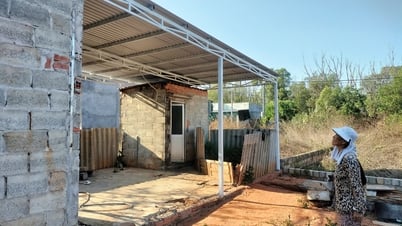However, according to many experts, although low-interest credit packages are expected to help young people access housing more easily, these preferential interest loan packages also pose many risks for both borrowers and lenders. First, the reduced interest rate in the early stages can make borrowers subjective about their ability to repay the debt later. When the preferential period ends, the interest rate will be adjusted according to the market, possibly skyrocketing, and borrowers will face a large debt that they will find difficult to pay. Therefore, borrowers need to carefully calculate their personal financial plan before deciding to borrow to buy a house. On the other hand, those with unstable incomes or without large collateral will find it difficult to access these loan packages. Therefore, many people with real needs still cannot take advantage of the opportunity to access low-cost home loan packages.
At the same time, loan procedures are still a hidden barrier. Therefore, banks need to be more flexible in assessing customers' financial capacity. For example, accepting non-traditional forms of income proof such as bank transactions and business invoices. In addition, interest rates are not the deciding factor. Currently, real estate prices are far beyond the financial capacity of many young people, especially in large cities. Without a suitable housing supply, lower interest rates may not make it easier for young people to own a home.
THANH HONG
Source: https://baobinhduong.vn/nhieu-uu-dai-vay-van-khong-de-mua-nha-a345899.html




























































































Comment (0)